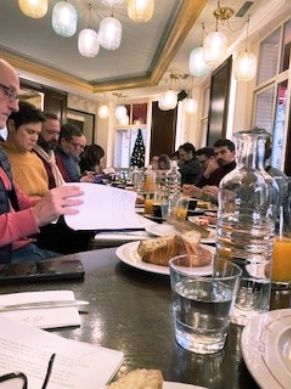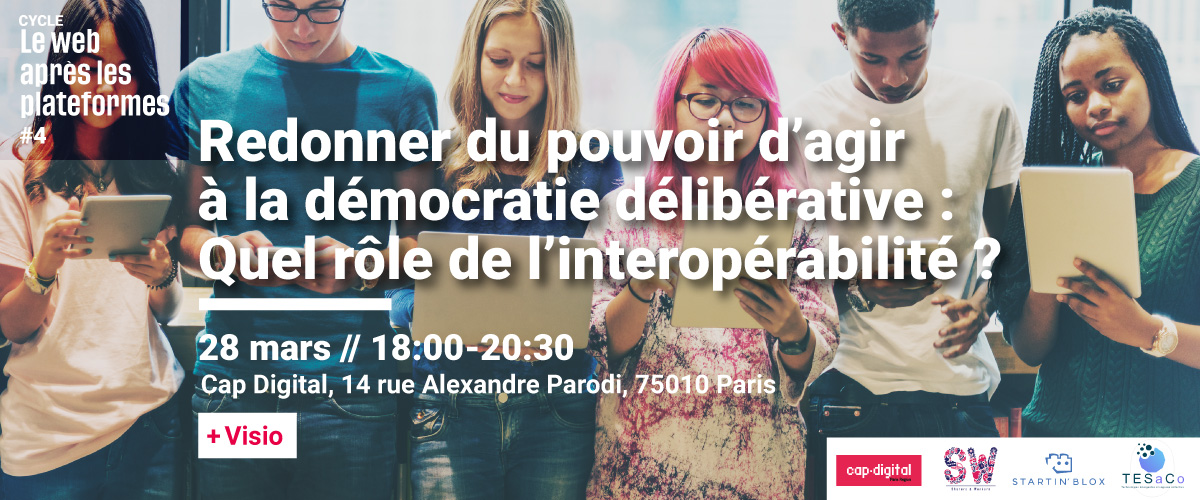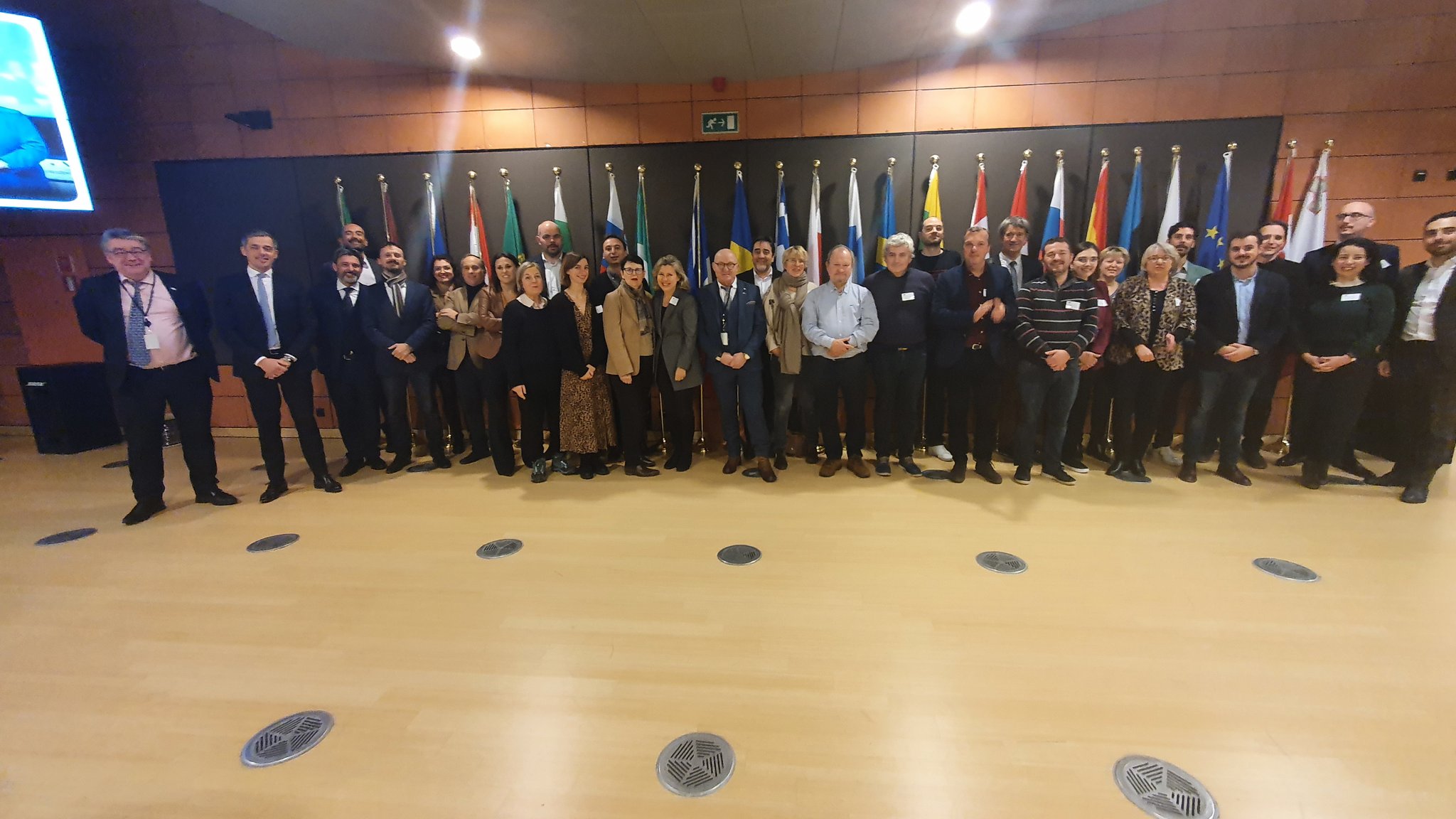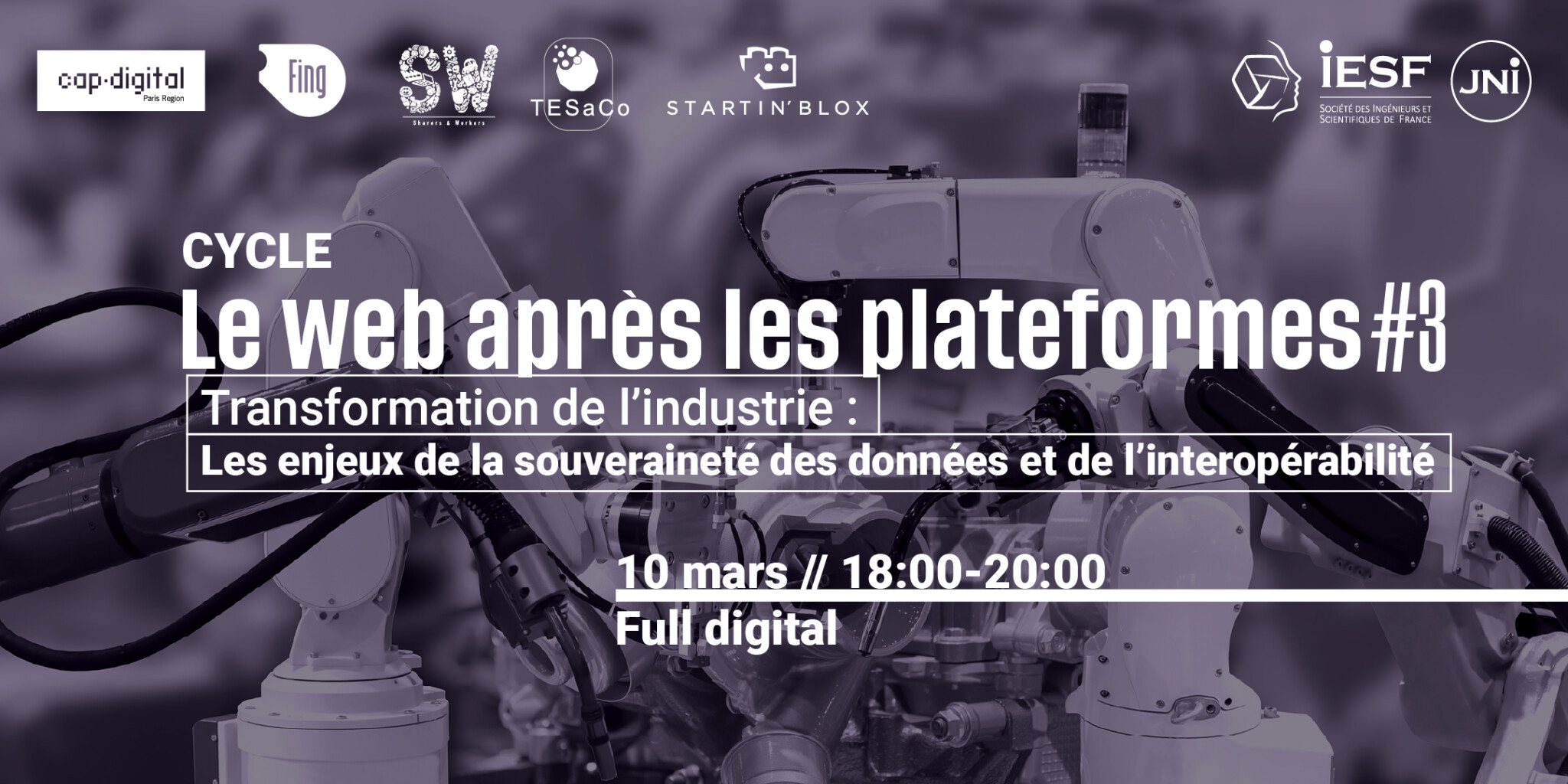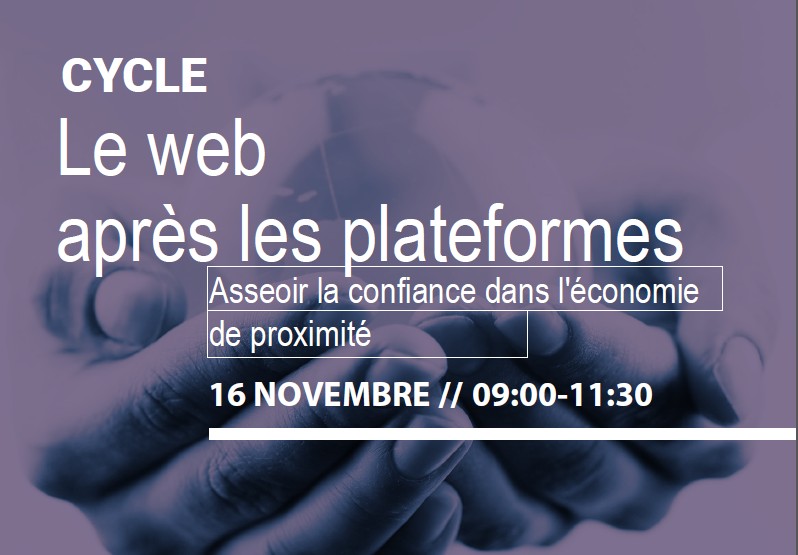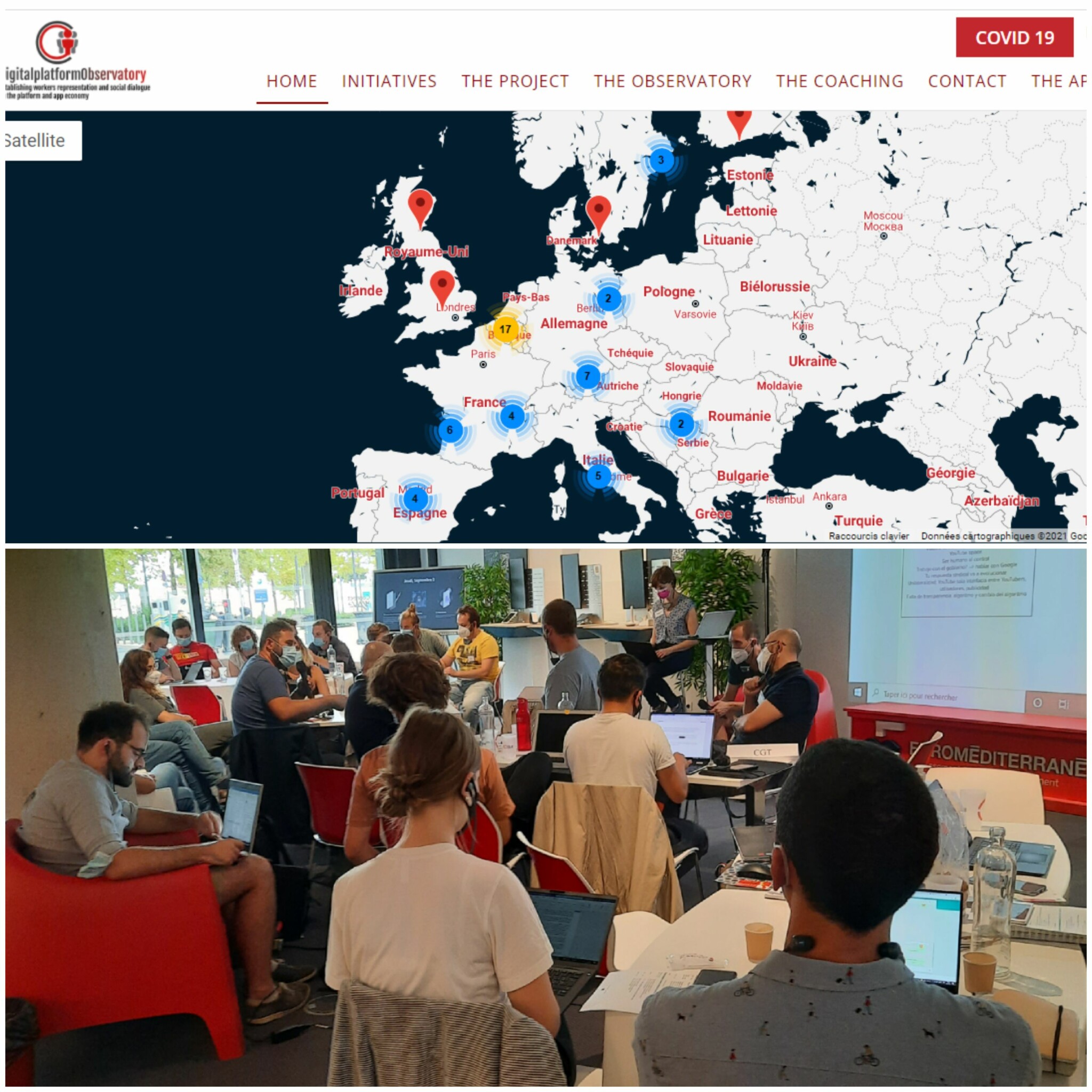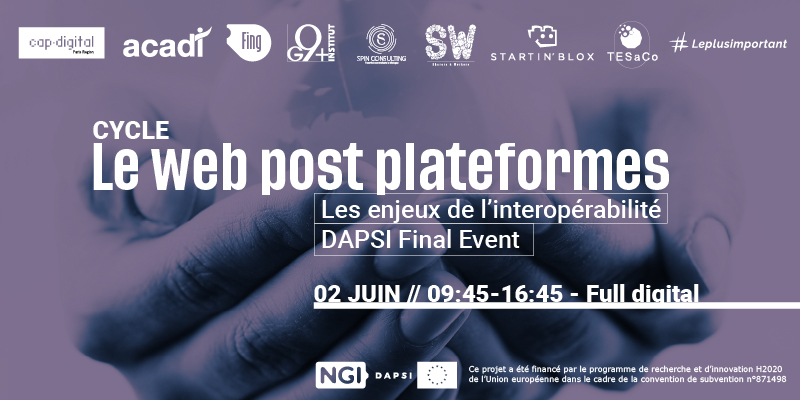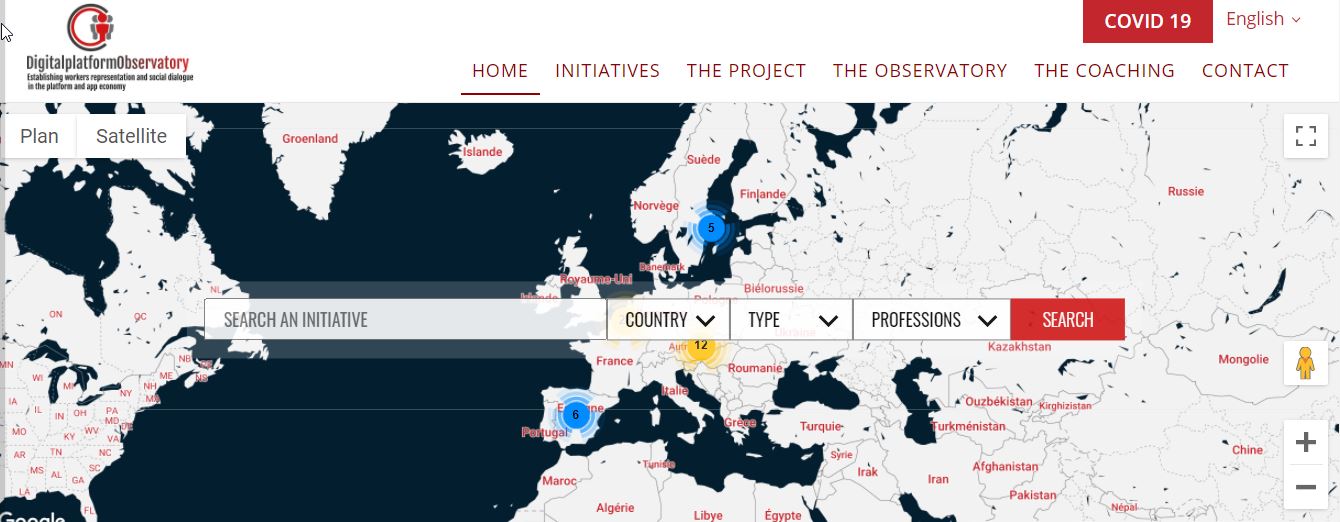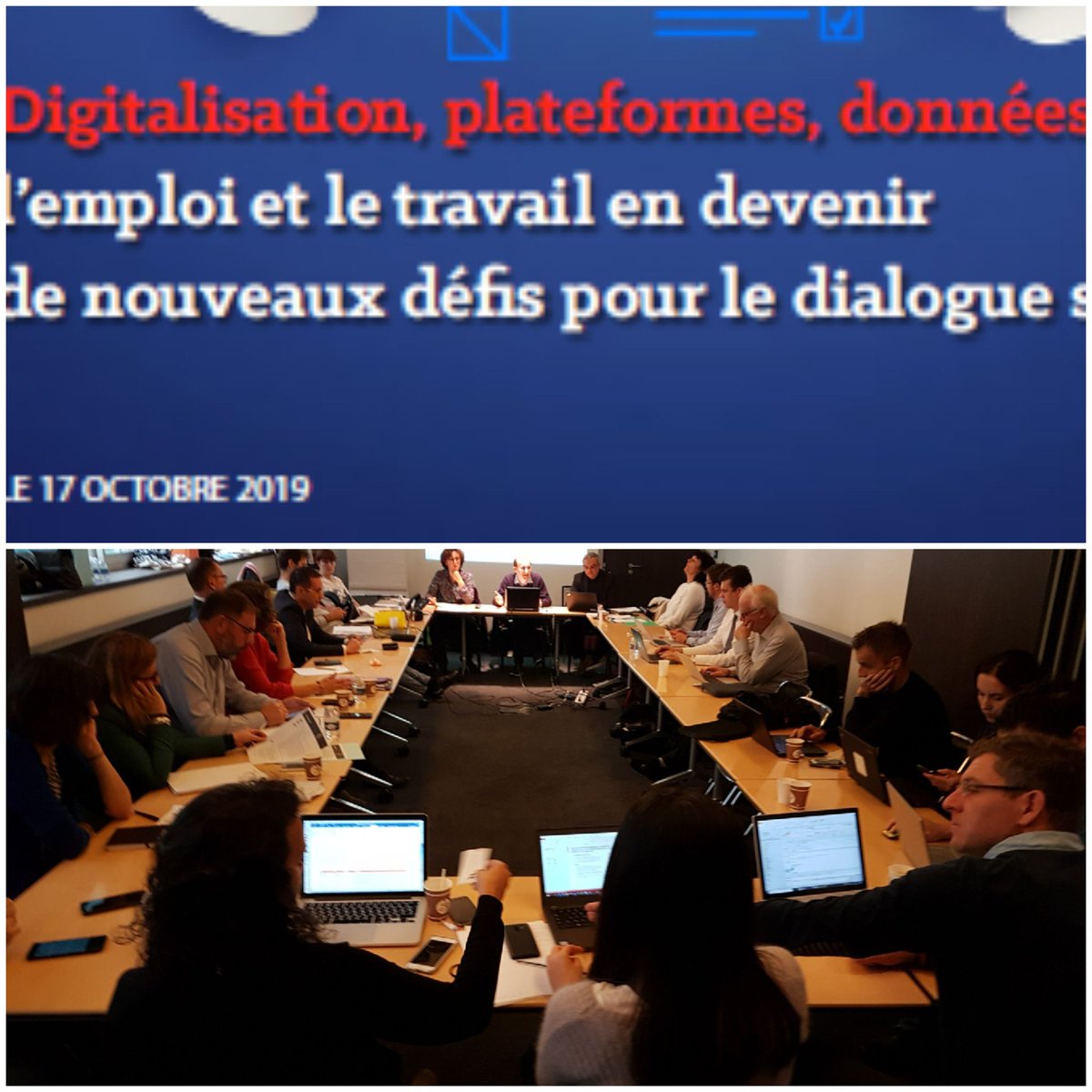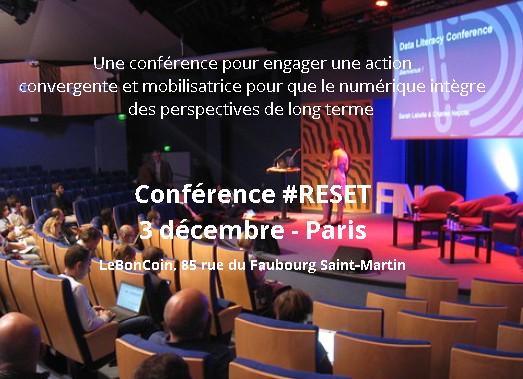Bibliographie sélective sur des initiatives en matière de protection sociale des travailleurs de l'économie collaborative…
STARTING A EUROPEAN DIALOGUE ON THE PLATFORM ECONOMY – Brussels – January 23, 2018
EVENT PRESENTATION 
The French network Sharers & Workers, ETUI and ETUC organise with the support of Groupe UP,the think tank Pour la Solidarité and Humanis an international event : STARTING A EUROPEAN DIALOGUE ON THE PLATFORM ECONOMY » in Brussels on January 23, 2018.
The event will bring together around 100 people from various EU countries, all of them involved in the platform economy. Operators of digital platforms, policy makers, trade unionists, experts, freelancers, etc., will discuss new ways to shape the digital economy and make it financially sustainable, technically innovative and socially responsible.
To stimulate the discussions, examples and experiences of “co-operative spirit” will be presented and shared
Interpretation will be available in French and English. Event by invitation only
The event will take place :
23 January 2018
09:30 to 16:00
Welcoming coffee, registration and distribution of badges starting at 09:00
La Tentation, Rue de Laeken 28, 1000 Brussels, Metro – Tram – Bus ‘de Brouckere’
program Sharers & Workers 23 january 2018
DAEMO
Paid crowdsourcing platforms provide opportunities for autonomous and collaborative professional work as well as social engagement. However, in recent years, the lack of trust and uneven distribution of power among platform teams, workers, and requesters have threatened the existence of these platforms. To address the challenges of trust and power, the Stanford Crowd Research Collective, a group of worldwide researchers has developed Daemo, a self-governed crowdsourcing platform. Daemo, an open sourced research project, is distinguished by its three fundamental building blocks: Boomerang Reputation System and Crowd Guilds, Prototype Tasks Design Workflow, and Governance Process.
(1) Boomerang Reputation System and Crowd Guilds: while crowdsourcing platforms suffer from reputation inflation, Boomerang aims to elicit more accurate feedback by rebounding the consequences of feedback directly back onto the person who gave it. With Boomerang, requesters find that their highly-rated workers gain earliest access to their future tasks, and workers find tasks from their highly-rated requesters at the top of their task feed. Inspired by a game-theoretic notion of incentive-compatibility, Boomerang opens opportunities for interaction design to incentivize honest reporting over strategic dishonesty. Daemo also proposes Crowd Guilds, centralized groups of crowd workers who collectively certify each other’s quality through double-blind peer assessment.
(2) Prototype Tasks Design Workflow:
Workers and requesters are often unable to trust each other’s quality, and their mental models of tasks are misaligned due to ambiguous instructions or confusing edge cases. To date, workers have been blamed for low-quality results; should requesters also bear responsibility for low-quality results? Daemo’s Prototype tasks design workflow encourage requesters to take ownership of the negative effects they may have on their own results. In order to fix downstream impacts of requesters’ decisions on work quality, Prototype tasks asks a small number of workers to provide a feedback so that requesters can revise their instructions, payment, and task designs before launch.
(3) Governance Process: Daemo’s constitution aims to provide platform team (Stanford Crowd Research Collective), crowd workers, and requesters with equal ownership and a means of governing the development and evolution of the platform into the future. The constitution outlines the goals of the platform, relationship between members of the community, and methods for seeking ideas, amending the constitution and resolving conflicts. With these three fundamental building blocks Daemo’s research aims to reestablish the trust in crowdsourcing platforms.
Daemo
https://www.daemo.org/home
https://www.sharersandworkers.net/wp-content/uploads/2018/01/daemo-uist.pdf
Prototype Tasks Design Workflow
http://bit.ly/2n01QTV
Boomerang Reputation System
https://dl.acm.org/citation.cfm?id=2984511.2984542
Daemo Crowd Guilds
https://dl.acm.org/citation.cfm?id=2998234
Governance Process Daemo Constitution:
http://bit.ly/2EZDDDD
BZZT
MEPLOY
Meploy is a cloud-based staffing solution for blue-collar labour that offers companies a direct access to a pool of temp workers. Our software automates the matching process, acting as a virtual recruitment consultant without the cost. Our solution removes up to 90% of the traditional temp agency fees, reducing the total costs for using temp staff while maintaining the salary level. We have a minimum salary of €15 per hour and handle holiday pay as well as sick pay.
Presentation of meploy:
SMART
Michel Bauwens about SMART
“There is a new generation of labour mutuals, or ‘business and employment cooperatives’ that have created a legal hack that allows autonomous workers to join the salary condition and through this avenue, achieve better protection that harmonizes them with the salaried condition. One of the prime examples is SMart, which originated in Belgium, with 75,000 members, but is now expanding as a ‘European Cooperative’ throughout the EU, and is part of an alliance of labour mutuals called Bigre, with other members such as Coopaname in France. Created in 1998, SMart is a cooperative that assists independent workers so that they can focus on their work without being overwhelmed by administrative burdens and the worry about unpredictable cash flow. Workers who join just a labour mutual pay a small percentage of their income to a mutual guarantee fund, which allows for more fast and regular payment of their invoices, which the labour mutual recuperates through ‘factoring’, acting as the invoicing agent; freelancers are then enabled to pay themselves a regular wage which can be converted into a more fixed salary, along with other tools that an autonomous workers may need. SMart also offers a strong mutualist and cooperative vision of meaningful work and in that way, allies itself with the progressive tradition of a labour movement working for human emancipation. It may well be the missing link between the precariat and the salariat.”
Smart and Deliveroo :
https://www.ceps.eu/publications/what-happening-platform-workers-rights-lessons-belgium
https://www.cairn.info/revue-francaise-de-socio-economie-2016-2-page-5.htm
STUART- LA POSTE
> Stuart’s website : https://stuart.com/fr/
> Laposte / Stuart information within dans Les Echos
Stuart : une plateforme socialement responsable
Contexte
Stuart est une plateforme de logistique urbaine qui est passée sous le contrôle total de La Poste en mars 2017. A la différence de ses concurrents, comme Deliveroo ou Uber Eat, elle n’est pas positionnée sur la relation directe avec le consommateur, mais est le fournisseur de logistique urbaine de la distribution (Franprix), de restaurateurs (Mac Do), de plateformes (Resto In) ou de livraison ponctuelle et rapide de plis et petits colis classiques.
Stuart s’appuie sur un modèle BtoB avec plus de prévisibilité de l’activité que celle des acteurs centrés sur la livraison de repas.
Pourquoi La Poste veut innover dans la protection sociale des coursiers indépendants ?
Les spécificités économiques et organisationnelles des plateformes conduisent celles-ci à travailler avec des indépendants. Pour le Groupe La Poste, le développement de ce type d’activité passe par la construction d’un modèle social responsable. Cette volonté a été affirmée dès la prise de participation du Groupe dans Stuart et a conduit à la construction d’une vision partagée entre le groupe et sa filiale.
Quel contenu La Poste propose pour une plateforme socialement responsable ?
Le contenu du modèle social de Stuart s’articule autour de 3 axes principaux : la sécurité et la santé, l’inclusion sociale, l’inclusion professionnelle.
Concernant la sécurité et la santé, Stuart propose une démarche mixant prévention (accueil précontractuel dédié, équipement de prévention individuelle1, formation en e-learning…) et assurances (une assurance RCP2 dès l’origine s’ajoutant à une complémentaires santé mise en place en janvier 2017 qui vont être enrichies d’une assurance Accident du Travail et d’une prévoyance).
Concernant l’inclusion sociale, Stuart, en appuyant sur l’expertise du Groupe La Poste permettra aux coursiers de construire leur dossier d’accès (prioritaire ou non) au Logement ou de cautionnement locatif (Visale). Une offre de crédit à la consommation sera mise en œuvre par La Banque Postale et la Coop La Poste s’ouvre à ce nouveau public.
Concernant l’inclusion professionnelle, La Poste accompagnera les coursiers qui souhaitent évoluer dans son écosystème soit en devenant facteur3, soit en devenant capacitaire de transport de marchandise. Cet accompagnement (orientation, formation, aide à la VAE) pourra inclure un financement via la banque postale du moyen de transport du coursier ou du capacitaire.
Ne pas pénaliser socialement les plateformes responsables
Les taux de charge total d’un salarié proche du Smic et d’un micro-entrepreneur (25%) sont finalement comparables, mais les niveaux de protections sociales sont à ce jour encore très divergents. Dans le même temps, alors que le modèle économique des plateformes reste fragile, le développement de plateforme socialement responsable (qui a un coût non marginal) ne doit pas être mise en difficulté par des question de requalification du contrat de travail qui s’appuierait sur la politique mise en œuvre en matière de santé, de sécurité ou d’inclusion sociale et professionnelle.
1 Veste, casque, lumière, batterie et sac 2 Assurance RCP et ATMP prise en charge dès le 1er euro de CA par Stuart, la complémentaire santé et la prévoyance étant à la charge du salarié 3 Soit par candidature directe sur poste, soit par un Certificat de Conducteur Livreur en Véhicule Utilitaire Léger ou un CAP Opérateur/trice Service Relation Client Livraison) via une VAE accompagnée ou un parcours de professionnalisation
TESTBIRDS
Testbirds was founded in 2011 and specialises in testing software by using innovative technologies and solutions. Under the slogan, “Testing Reality. Real users. Real devices. Real time.”, the company offers various testing methods to clients looking for user-friendliness and functionality optimisation. With over 250,000 registered testers located in 193 countries, Testbirds is one of the world’s leading crowdtesting providers. The company also utilises cloud based technologies to support customers in optimising their digital products. The combination of the two testing methods delivers a unique portfolio that takes the quality of software to the next level.
The Code of Conduct conduct : http://crowdsourcing-code.com/
Roundtable session (11h – 12h30)
General scheme
– 6 or 7 round tables will be held after the « spotlight session » (9.45 -11.00)
– Each table will be dedicated to a specific topic, in link with the initiatives presented earlier in the morning.
– A moderator will lead the discussions in each roundtable
– In each roundtable, participants will be asked to provide answers to some open-ended questions and then to report their main observations and conclusions in plenary session (afternoon)
Roundtables topics
– Workers representation: company/platform level or beyond?
– Integrationand career progression: from jobbing to work
– Self regulation of the platform economy? (codes of conduct, mediation procedures, etc.)
– Self-employed or employees?
– How to better protect platform workers?
– Co-operative governance for online platforms?
Proceedings
1. The moderator opens the discussion
2. A ‘rapporteur/recorder’ is chosen by the group (for the afternoon plenary session)
3. Participants in each roundtable are to discuss the following general issues:
According to you, what does the roundtable topic mean / refer to?
What benefits can be drawn from /associated with the roundtable topic?
How to reap the expected benefits: drivers and obstacles?
4. Participants draft together the short report to be presented in the afternoon session
PLENARY SESSION
BEYOND EXISTING INITIATIVES, EXPLORING FUTURE PATHS TOGETHER.
Material relating to the presentation of the plenary session
FAIR WORK FOUNDATION PROJECT
COOPCYCLE
CoopCycle provides a software that enables customers to order and to be delivered by bicycle. Ordering is done thanks to Coopcycle Android and iPhone apps or Coopcycle website. Same functionalities as the gig economy platforms, but in a diametrically opposed spirit.
CoopCycle aims to become a numerical common well. It belongs to its users (couriers, shop owners) and its contributors (developers). They administer it democratically. The software is ruled by a licence by the Peer-to-peer Foundation. It limits its commercial use to worker-owned coops. For now on, Coopcycle provides the software for free, in order to give the impulse of coops creation. Coopcycle goal is to finance it thanks to a contribution, which gives rights to use the software and to administer it.
https://blogs.mediapart.fr/coopcycle
https://demo.coopcycle.org/fr/
ORGANISERS:


